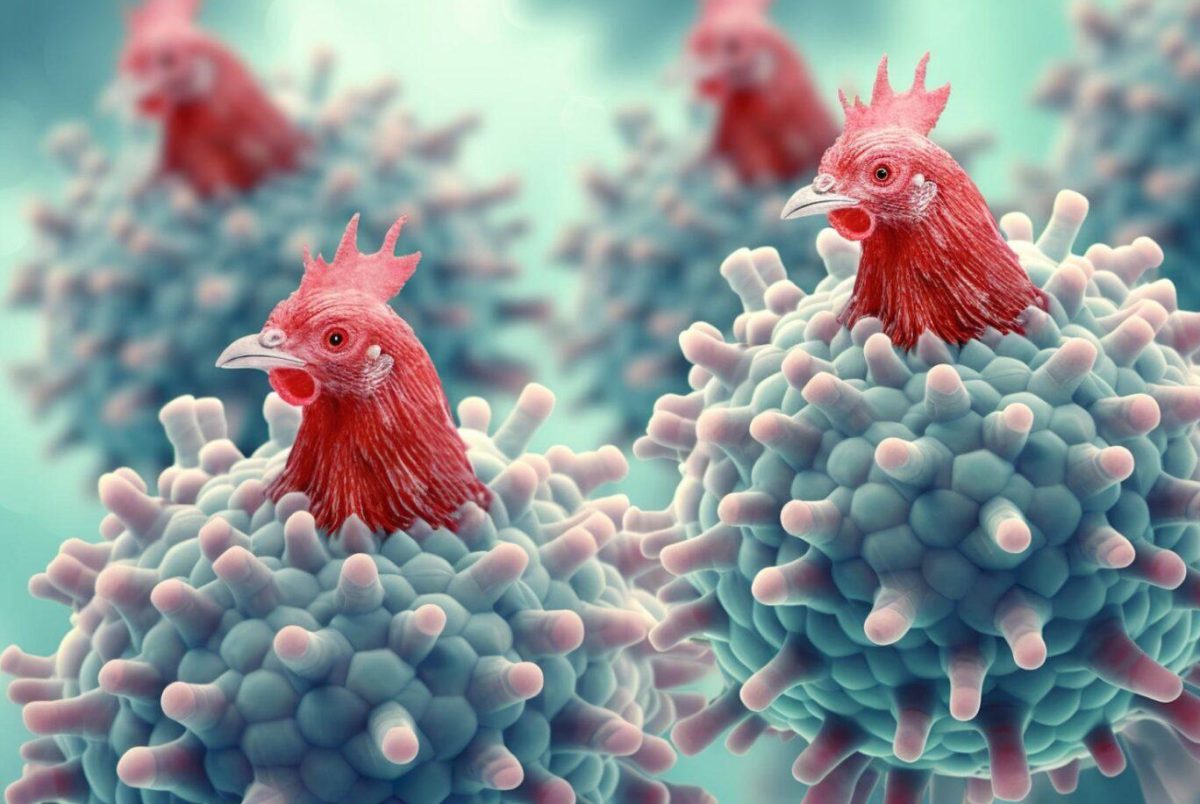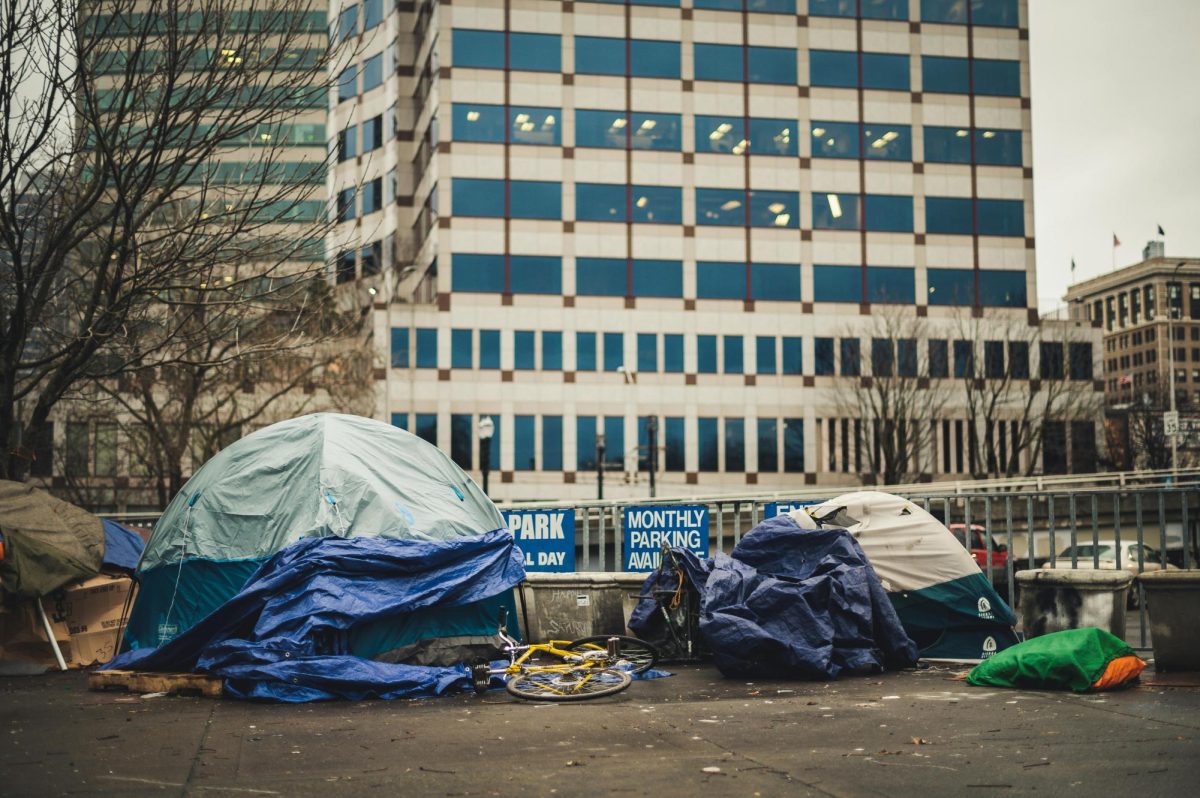Many college students suffer from the impacts of substance abuse, domestic violence, mental health, homelessness and many other issues. Students may feel embarrassed to reach out for help or lack information on how to reach out for the aid and treatment that they need. Many students face their troubles alone, not knowing they have resources within reach.
“I don’t think that many students know their rights,” said Nicole Conklin, Grossmont College’s director of Public Safety. That’s why the Campus and Parking Services (CAPS) office, located in Building 57 on the east side of the parking garage, is stocked with resources that can help.
“The resources are here so that if they happen to visit our office (or others) they can easily browse them and hopefully find something they are interested in,” Conklin said. “Our ultimate goal is to help educate students as best as we can on a variety of subjects that will keep them safe and lead to a successful future.”
Substance abuse is one of the most common problems among college students. Several college students resort to the use of drugs due to the high levels of stress caused by their academic performance or social lives. Easy accessibility of drugs on campus is also a common cause of substance abuse.
The Grossmont-Cuyamaca Community College District’s Governing Board has embraced policies designed to discourage and prevent substance abuse. Grossmont College provides resources such as individual counseling; referral to community resources; substance abuse information (like brochures and pamphlets); drug abuse “hotlines”; student clubs and organizations that provide information on drug abuse; and courses that discuss substance abuse issues.
Justin Solz, a business student at Grossmont, said the CAPS office is a great place to go to for more information or resources. He said he believes a lot of students are struggling with substance abuse, not only on campus but also at home, and knowing help is within reach is very important.
Grossmont also provides information and help with mental health issues. The Grossmont College Student Health & Wellness Center provides mental health counseling services to all currently enrolled Grossmont students.
The counseling provided by the school can help students deal with depression, persistent sadness, lack of motivation, anxiety and panic attacks. It can also help students to find out more information and resources related to sexual assault, rape and suicide prevention.
Conklin said it can be hard to get information distributed widely. However, she said every year the school notifies students, via email, of the school’s Annual Security Report, which provides information on many different resources that can be helpful for students.
“Many of our faculty will reach out to me as well for presentations and brochures that they can present to classes,” Conklin said. “It’s great when I get to go interact with students at the beginning of the semester.”
Students who need help with things such as domestic violence, substance abuse, suicide prevention or other issues have access to many resources depending on their needs and the solutions they seek.
The college’s contract with the San Diego Sheriff’s Department provides police services and a dedicated Psychiatric Emergency Response Team for psychological response needs. The Grossmont College Student Affairs offices and Title IX Coordinator can also offer confidential help in some areas.
“Sometimes students may be too shy or scared to go to police services and worry about confidentiality. In those cases, we do have counselors on our campuses in the student center that they can speak to privately,” Conklin said.
Grossmont also provides a suicide prevention hotline #988, an anonymous WeTip reporting hotline, and campus security authorities, all of which can assist students in need. The Annual Security Report discloses these services and outlines students’ rights so they know what to expect when seeking help.
Zoe Vincent, a Grossmont student, said: “I think it is very important that students have access to these resources. Both students who may need the help immediately and those who may not at the moment. For those who need it immediately, knowing that help is accessible and provided for them eliminates one of the barriers to seeking help that many people are commonly faced with.”
Vincent also mentioned that for students who do not need help immediately, knowing that the help is there provides a sense of security and a safety net.
Having these services around campus can be very helpful to students in many different situations. Students who are currently struggling with any difficult circumstance need to know that help is within reach and that they are not alone.
Many students are unaware of the resources and legal rights they have unless they are communicated with them. Talking about it in class, via email and even sharing it between students who already know about these resources can be extremely helpful.
When asked about what he thinks the school should do to spread information about these resources, Solz said: “I think it should be more broadcasted in classrooms. I am only in there for one class, but my classroom does not have any sort of posters advertising any type of campus resources that the school has.”
Grossmont students who need help or know someone who might benefit from these resources are encouraged to reach out for help. The Student Affairs Office and the CAPS office provide a lot of information about different topics depending on the student’s needs.
Visit the College & Community Resources by clicking here if you need information about student services and resources.
If you are struggling or know someone who is, know you are not alone and help is within reach. For help with suicide prevention, call the Hopeline by dialing (800-784-2433). For help with domestic violence, call the Domestic Violence Hotline (888-385-4657). For help with substance abuse, call the Crisis Line (888-724-7240). For help with emergency housing, dial 211.









